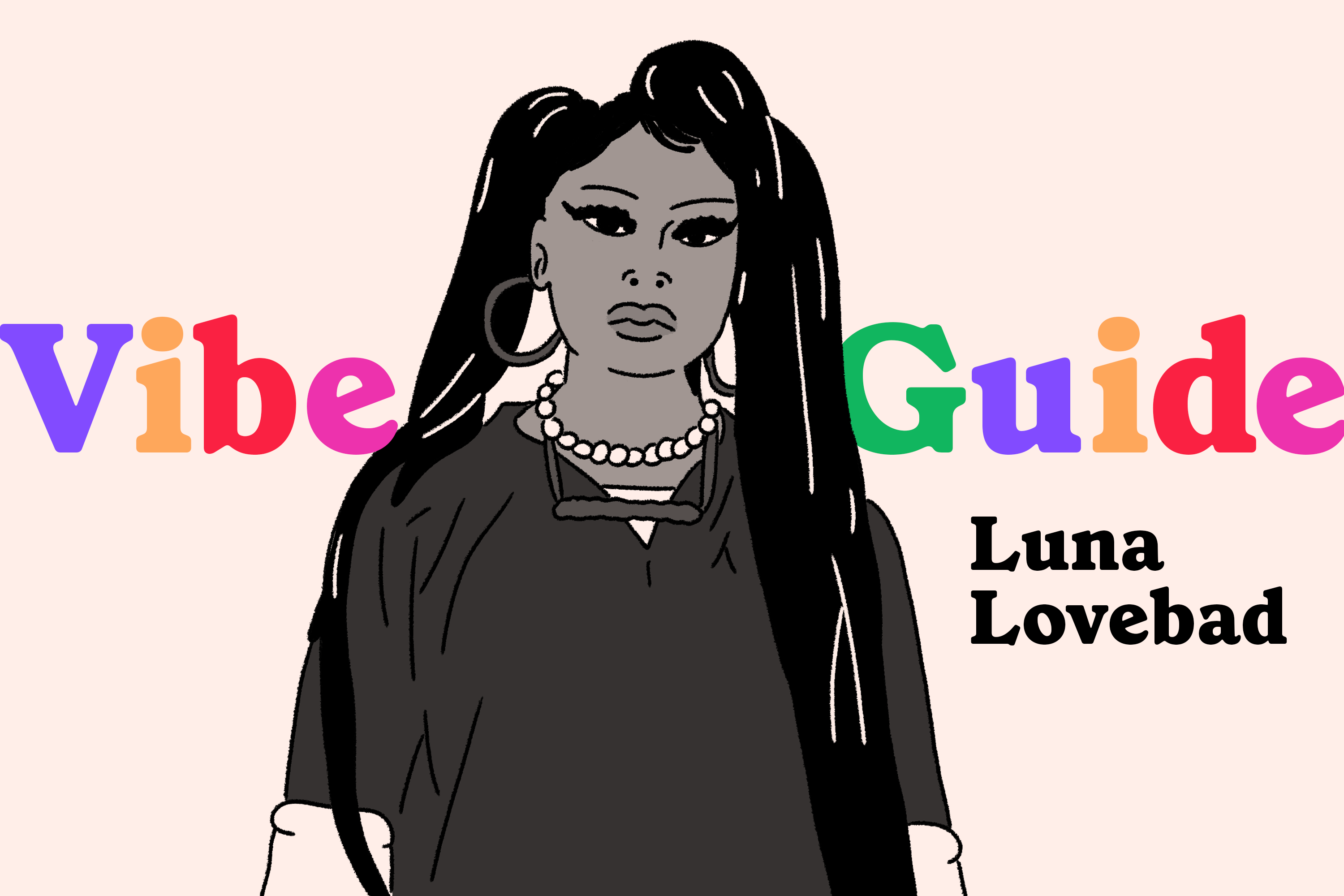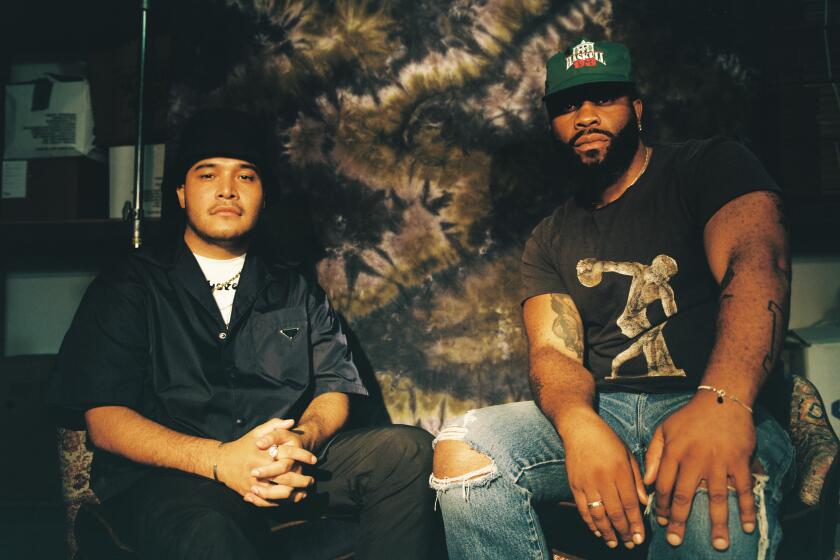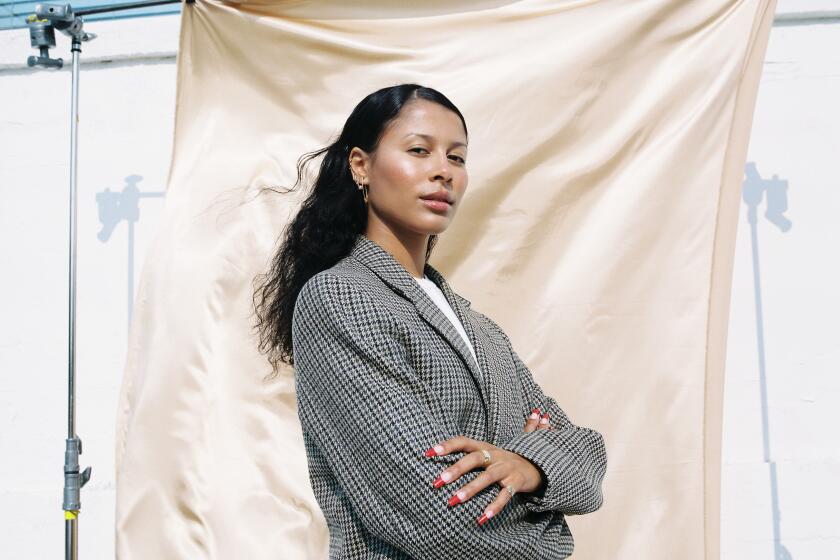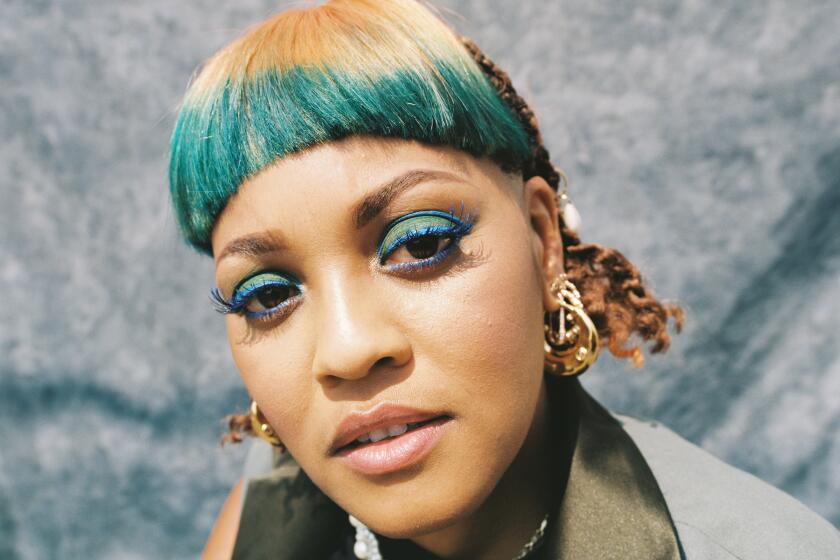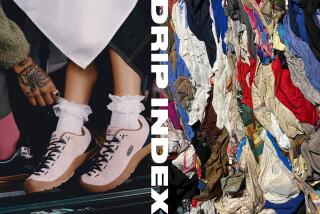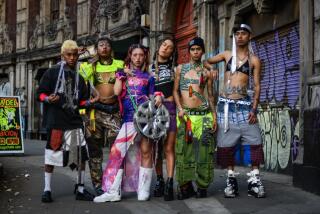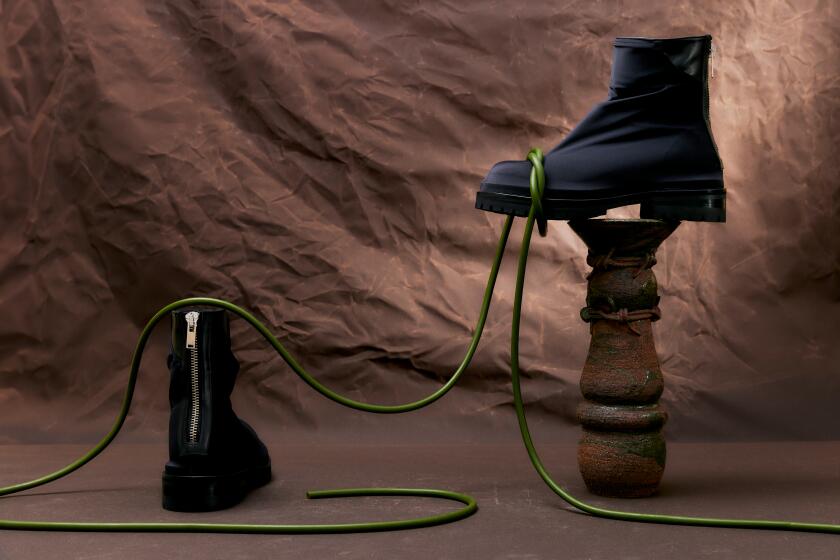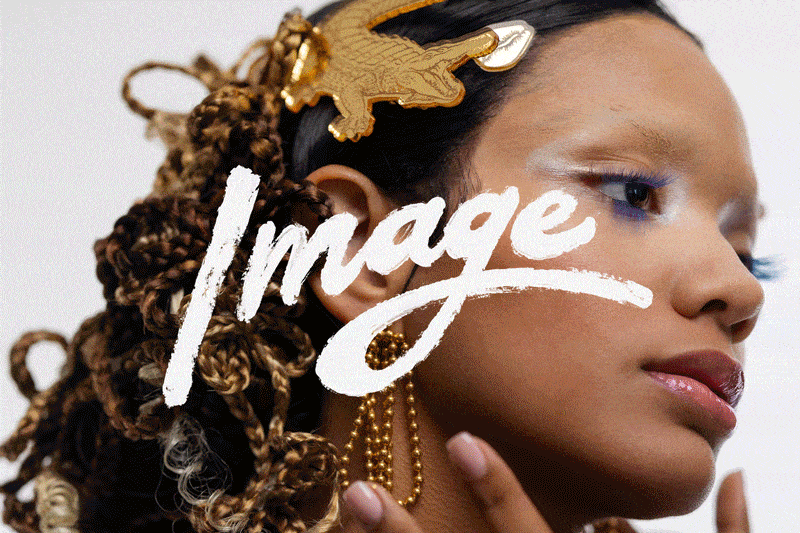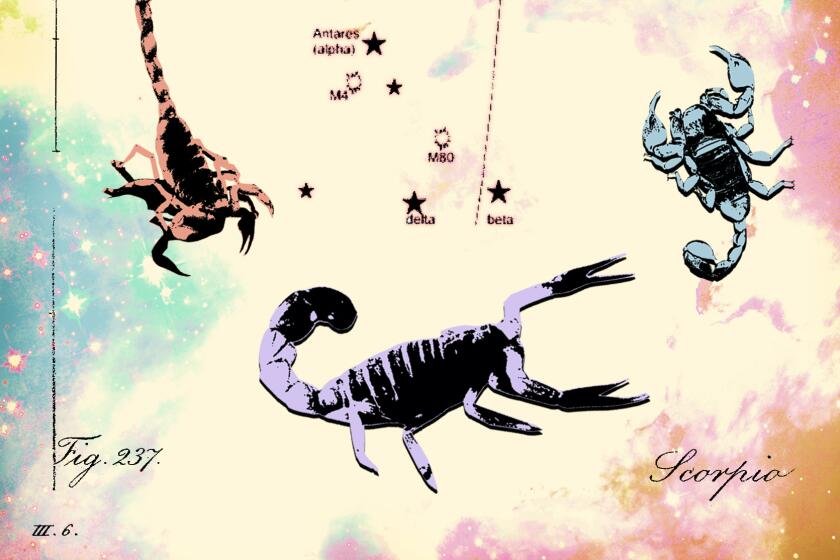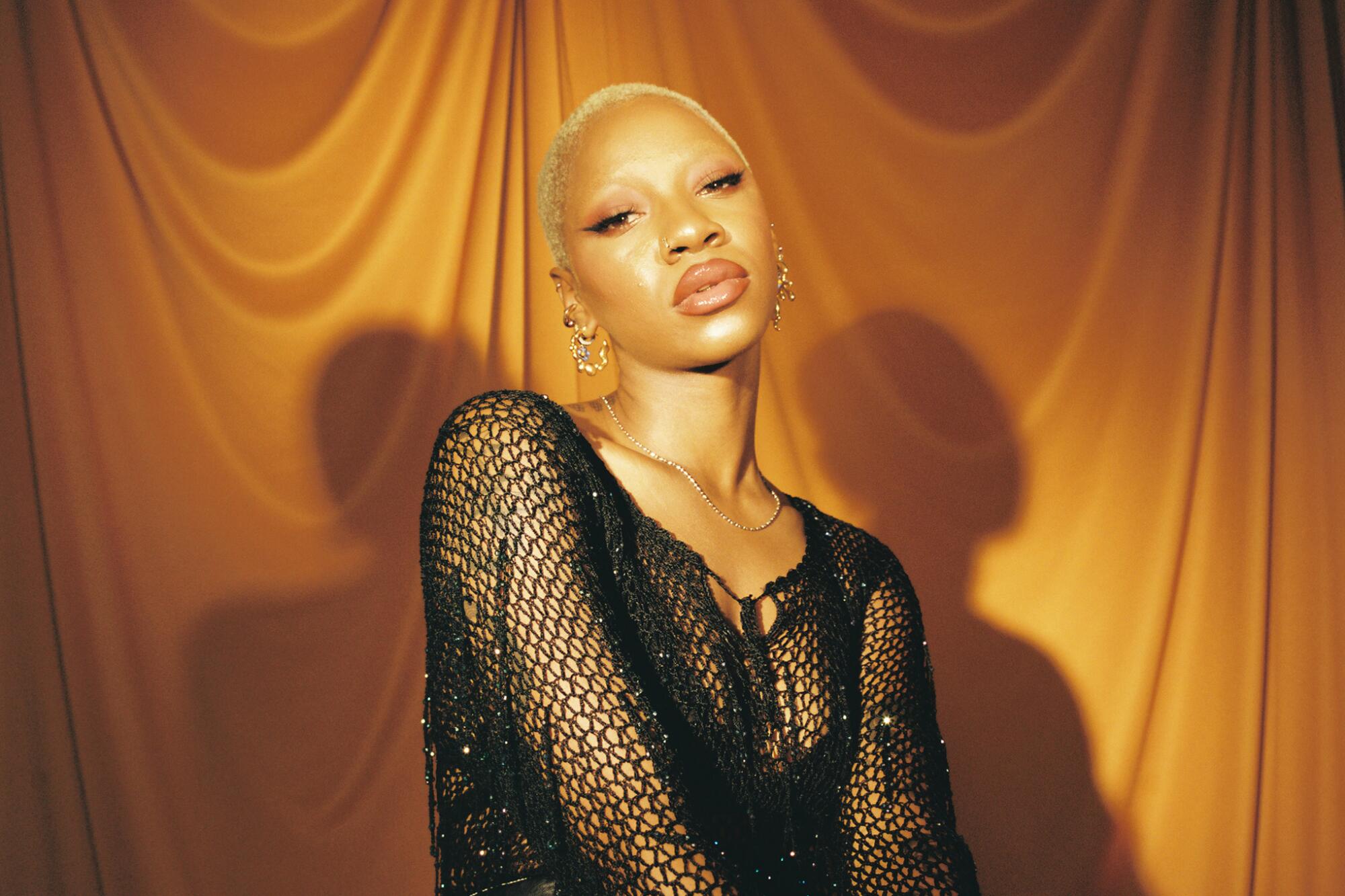
This is part of Image Issue 4, “Image Makers,” a paean to L.A.’s luminaries of style. In this issue, we pay tribute to the people and brands pushing fashion culture in the city forward.
Black Market Flea is something to be felt. As much as it’s a showcase of L.A. streetwear brands, artists, healers, it’s a showcase of love. That’s what you feel — love. Flowing freely. Everywhere.
The vibe is in the details: Dad caps and fitted hats worn proudly with thigh shorts and sneakers; a collage of geometric eyeshadow shapes, long pink tails, patterned bell bottoms, chunky sandals, thick-frame sunglasses; the small dog’s fit that matches its eccentric owner. Not much haggling or bargaining transpires. Just gentle hellos, broad smiles, warm eyes, big laughs. That girl you follow on Instagram for her impeccable style is standing to your right looking at vinyls. But so is that security guard who looks like What’s His Name’s uncle. The subtle scent of sweet incense wafts through the open air.
This is what Mayah Hatcher, the 23-year-old founder, has cultivated. “I wanted it to feel like a family reunion,” she tells me. Mayah keeps a watchful eye over the entire space, almost like a matriarch. “I wanted it to feel warm and cool and inviting. And I wanted it to feel very familial.”
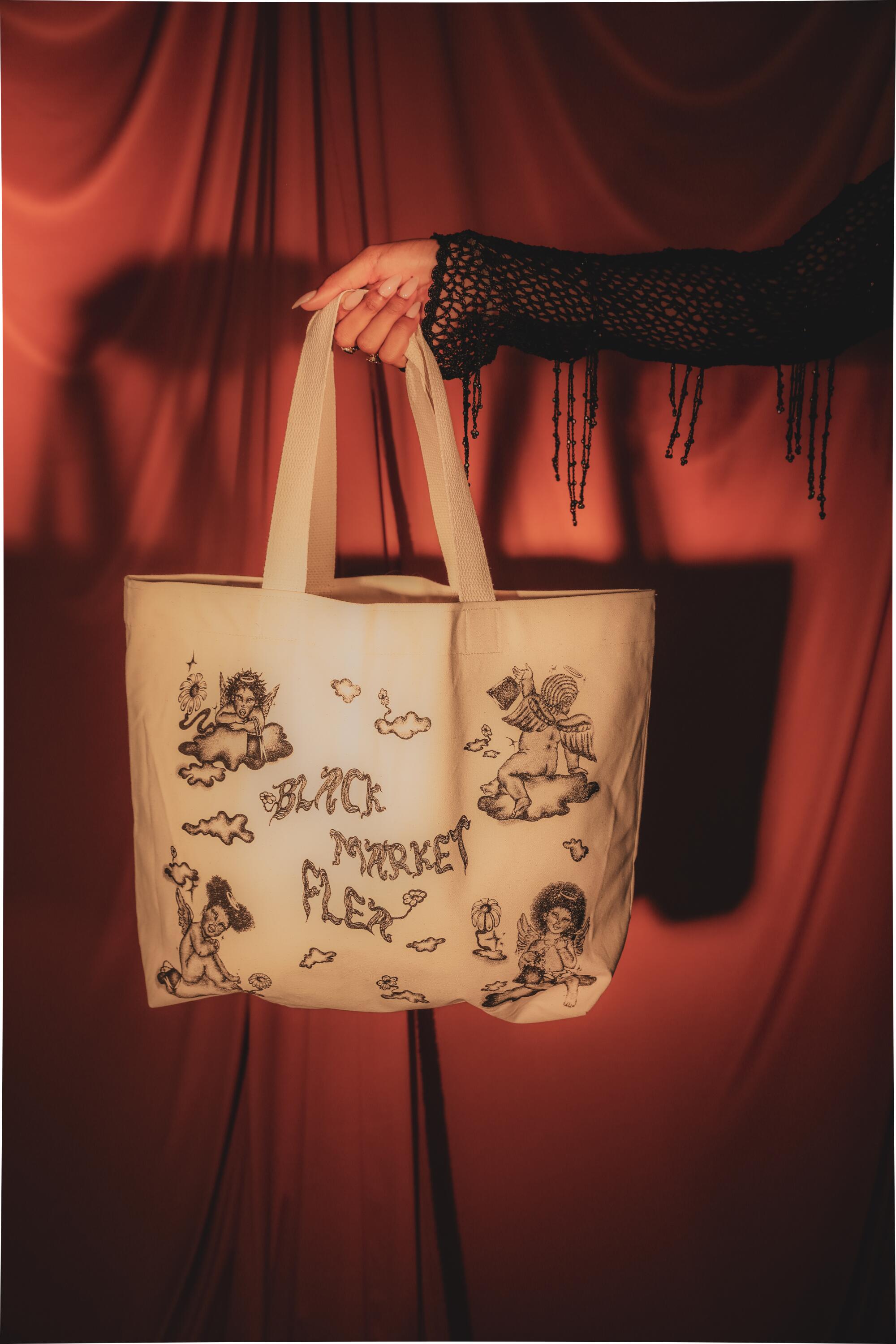
The Black Market Flea is a monthly flea market filled with clothing lines and handmade goods created, crafted and designed by Black people. A big slice of L.A. fashion lives here — from handmade and upcycled clothing brands to curated vintage lewks. It’s only been around since the summer. The first Black Market Flea took place in June. Already it’s become a kind of connective tissue for Black-owned fashion in the city.
“I created this so it can be a starting point for a lot of people, not so that they could be stagnant here,” Mayah says. “Life is constantly changing. It’s all about flow. It’s all about growth. I honestly believe in all these people; they are here for a reason.”
Take the musicians who frequent the Black Market Flea, for example. The flea is full of sounds. But you see them too. DJs play tunes from artists like Isaiah Rashad, who himself is a patron. (He popped up at the second installment and became a fan of Just Luv Creamery.) Theophilus London, impressed by Mayah’s work, started selling merch from his record label. He even performed a 45-minute set with unreleased and older songs. Ebonee Davis, Smino, Blue the Great and Nez also have visited the market.
Image Makers stories
Jason Parham on the white T-shirt that changed L.A. fashion forever
Streetwear gods Kids of Immigrants know love is a long game
Sami Miró has the secret to making sustainable fashion work
The Paisaboys let us in on the long-running inside joke behind the gear
Porcelain Sneakerhead sends her regards
Many feel a deep desire to show up for Mayah, whose positive energy is undeniable. She is a model and also works at Puebla, a plant store in Venice. Her style is a mix of bright, thrifted pieces: a green butterfly crop top, a scarf covering her blond, close-cut hair. When I met with her, she stood tall in ripped denim jeans — very 2000s — and her eyelashes fluttered when she introduced herself.
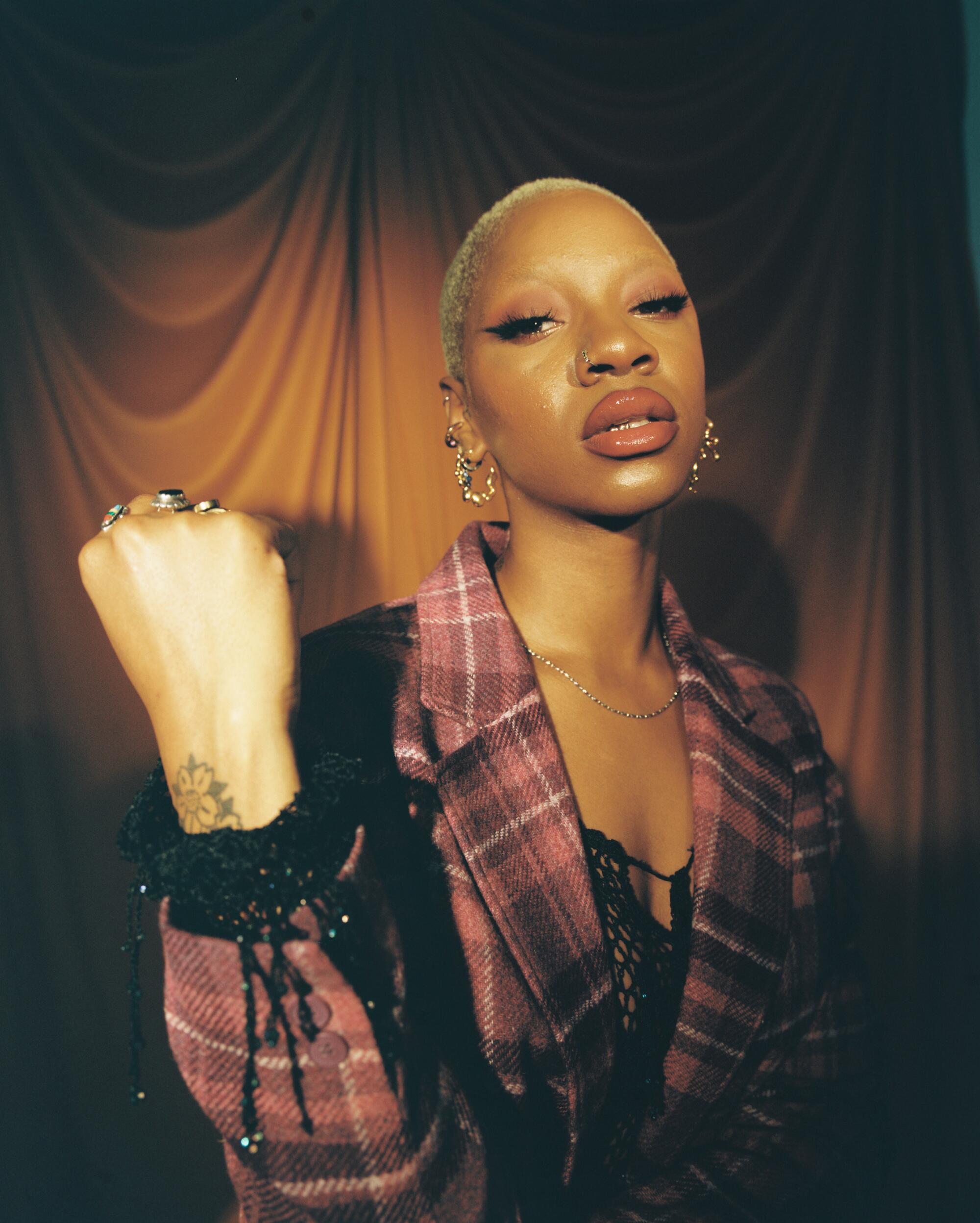
Mayah has always been interested in community gathering, organizing. She moved around a lot as a kid but mostly grew up in Phoenix, in a tight-knit family. They leaned on each other to survive. “Growing up poor either tears you apart or brings you together,” she says. She felt “so othered and so out of place” in Arizona. But community — specifically a small cadre of like-minded creatives — helped her through. When her brother was murdered in 2018, they supported her. “Community at the end of the day — it’s what? It’s what saved me when my brother was murdered,” Mayah says. “It’s what continues to save me every time I take an L.”
In 2020, she moved to Los Angeles to pursue modeling. But what really drew her to the city was “how connected, loving and tight-knit the Black community is here,” she says.
L.A. Vibe Guide: Luna Lovebad curates the perfect week
Mayah started a small thrift shop out of her love for 2000s fashion. When she started working as a vendor at a flea market across town, she felt both ostracized and tokenized. One of the few Black vendors, she was placed toward a front entrance. The rules — like lowering her music — felt punitive and ridiculous. She sensed that her presence wasn’t welcomed by others. “I was like, ‘Where can I feel like I’m safe and surrounded by people I identify with?’ she remembers thinking.
She realized that the important thing was to be “surrounded by people who are trying to better not only themselves but their friends and strangers.” That meant starting a flea of her own. She first looked at smaller spaces. But a friend, Kene O., advised her to “go bigger.” Vendor outreach was touch and go. Mayah’s flea was new, and some vendors weren’t yet ready to make the jump from established fleas with guaranteed foot traffic. But some were all in. By the third flea market in August, more than 1,050 people came through and the number of vendors grew from 27 to 60.
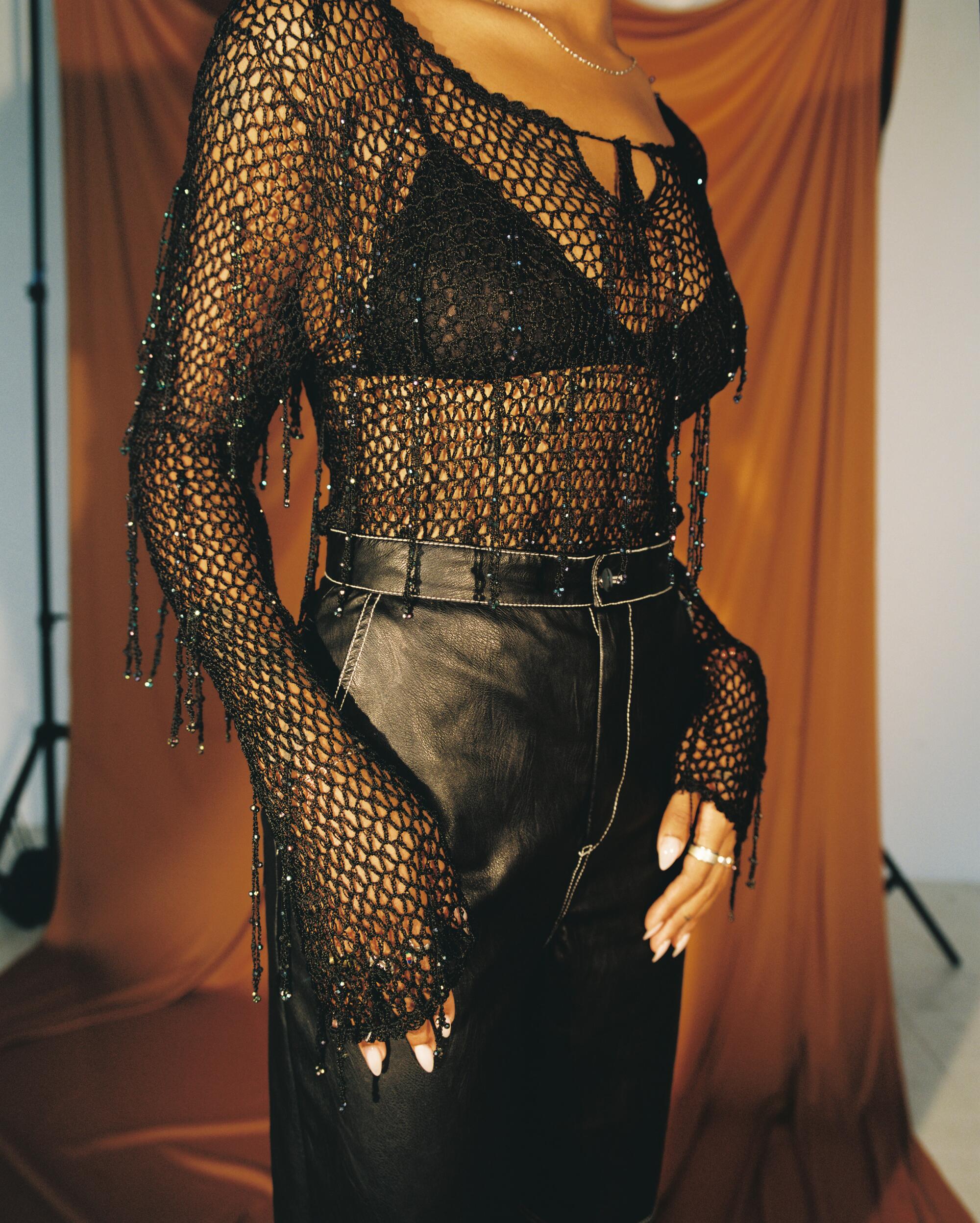
“I really hope that this creates opportunities for all the vendors that I have here,” Hatcher says. “I want our food vendors to get booked at other places. And I want this clothing vendor to be a personal stylist for their favorite celebrity or musician.”
At the end of the day, Black Market Flea is about holding space, supporting community. Before traveling — the day after August’s event Mayah was off to New York City for castings — she makes it a point “to grab clothes from my vendors,” she says. “Because when so-and-so is taking photos of me on the street and asks me what I’m wearing, I’m like, ‘Oh, I’m wearing this brand.’” Then they’ll know it’s from Black Market Flea in L.A.
Darian Symoné Harvin is a beauty and culture writer. She was born in Long Beach, Calif., grew up in Buffalo, N.Y., and lives in Los Angeles.
